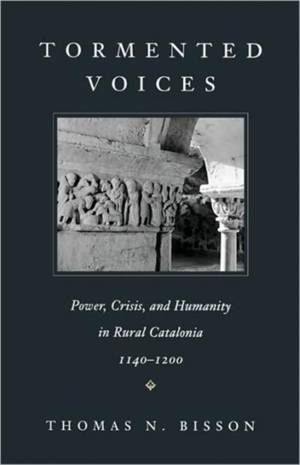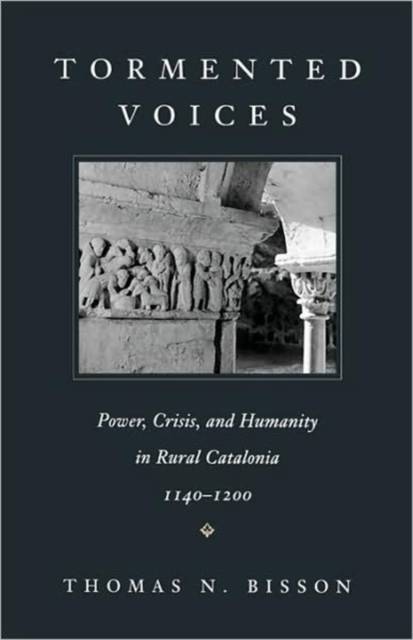
- Afhalen na 1 uur in een winkel met voorraad
- In januari gratis thuislevering in België
- Ruim aanbod met 7 miljoen producten
- Afhalen na 1 uur in een winkel met voorraad
- In januari gratis thuislevering in België
- Ruim aanbod met 7 miljoen producten
Tormented Voices
Power, Crisis, and Humanity in Rural Catalonia, 1140-1200
Thomas N BissonOmschrijving
Mute in life as in death, peasants of remote history rarely speak to us in their own voices. But Thomas Bisson's engagement with the records of several hundred twelfth-century people of rural Catalonia enables us to hear these voices. The peasants' allegations of abuse while in the service of their common lord the Count of Barcelona and his son the King reveal a unique perspective on the meaning of power both by those who felt and feared it, and by those who wielded it. These records--original parchments, dating much earlier than other comparable records of European peasant life--name peasants in profusion and relate some of their stories.
Bisson describes these peasants socially and culturally, showing how their experience figured in a wider crisis of power from the twelfth century. His compassionate history considers demography, naming patterns, gender, occupational identities, and habitats, as well as power, coercion, and complaint, and the moralities of faith, honor, and shame. He concludes with reflections on the historical meanings of violence and suffering. This rich contribution to medieval social and cultural history and peasant studies suggests important resources and ideas for historians and anthropologists.Specificaties
Betrokkenen
- Auteur(s):
- Uitgeverij:
Inhoud
- Aantal bladzijden:
- 208
- Taal:
- Engels
Eigenschappen
- Productcode (EAN):
- 9780674895287
- Verschijningsdatum:
- 1/08/1998
- Uitvoering:
- Paperback
- Formaat:
- Trade paperback (VS)
- Afmetingen:
- 139 mm x 207 mm
- Gewicht:
- 226 g

Alleen bij Standaard Boekhandel
Beoordelingen
We publiceren alleen reviews die voldoen aan de voorwaarden voor reviews. Bekijk onze voorwaarden voor reviews.









